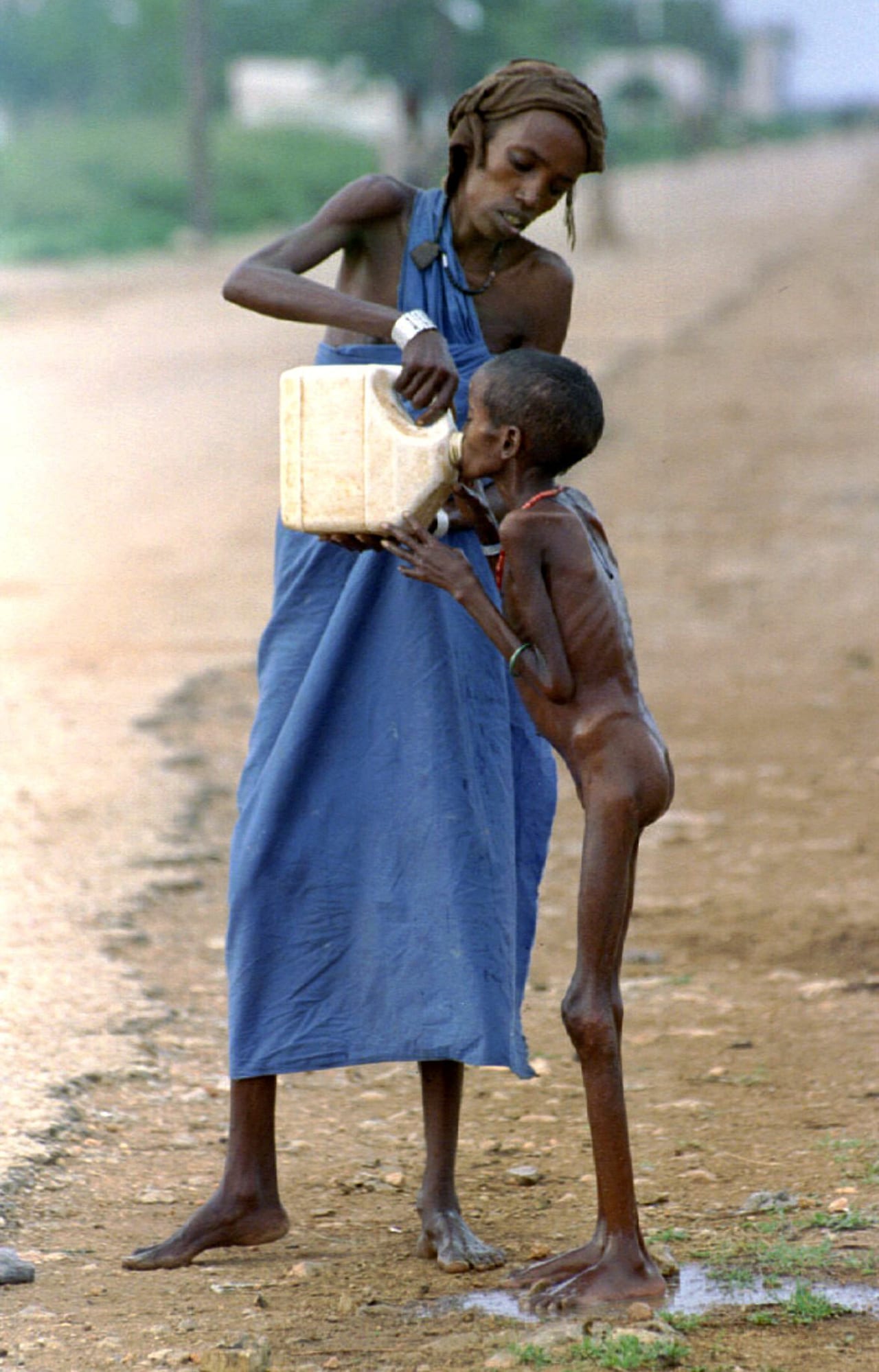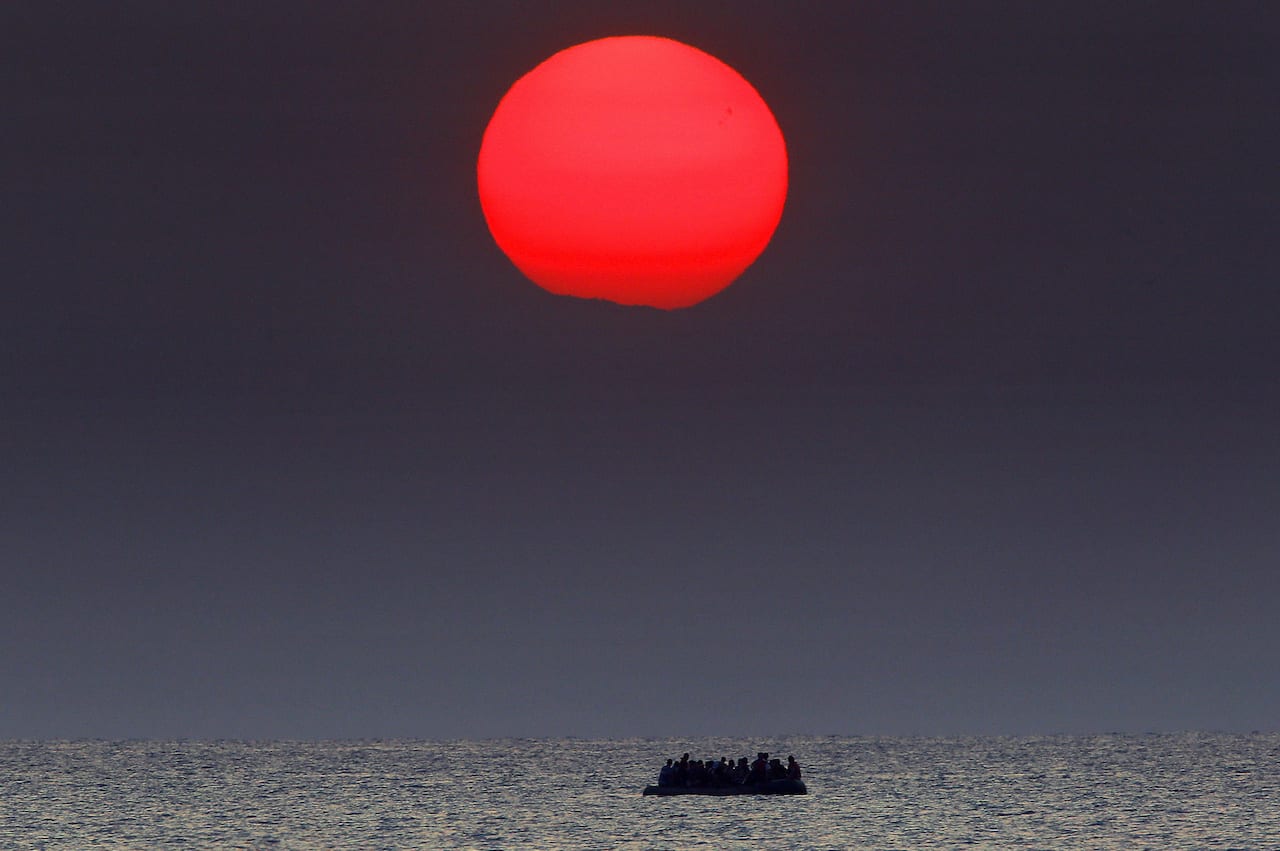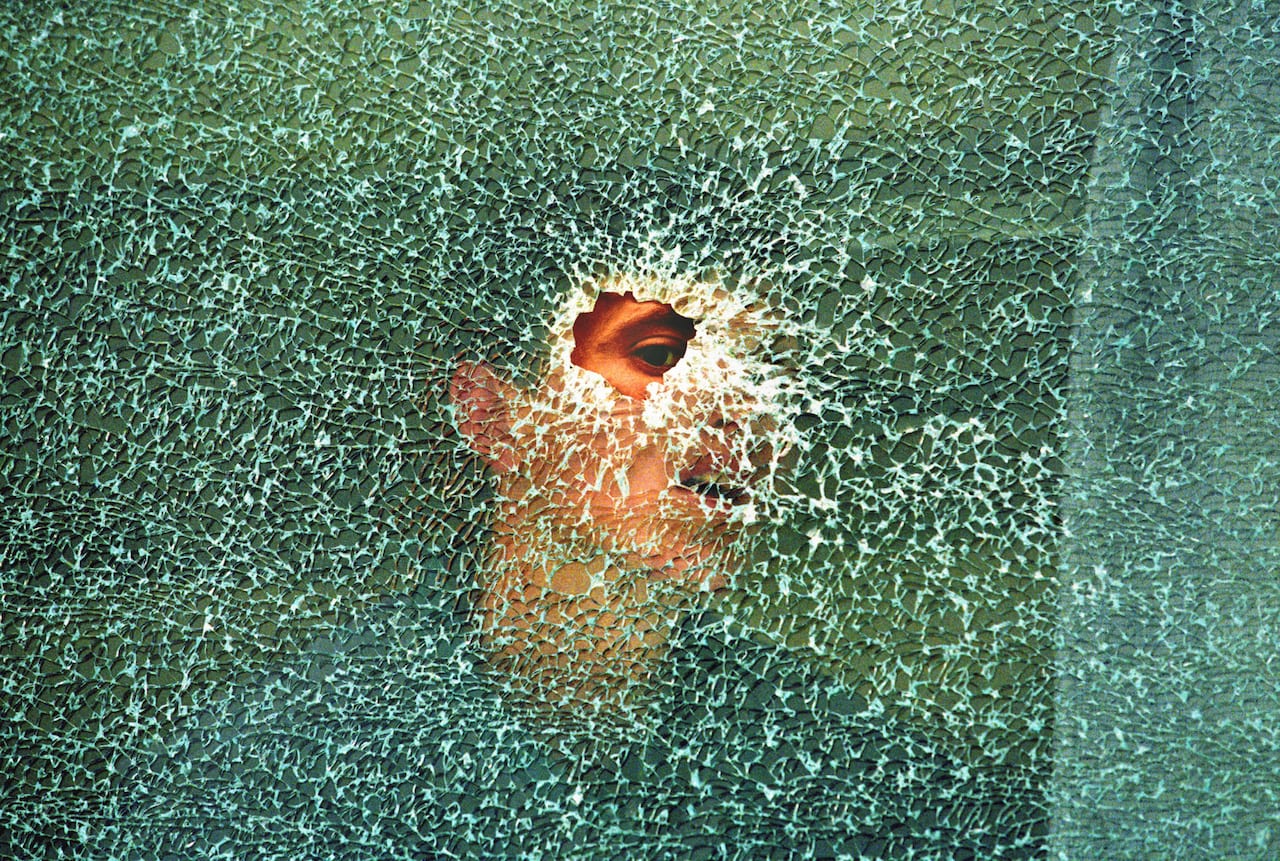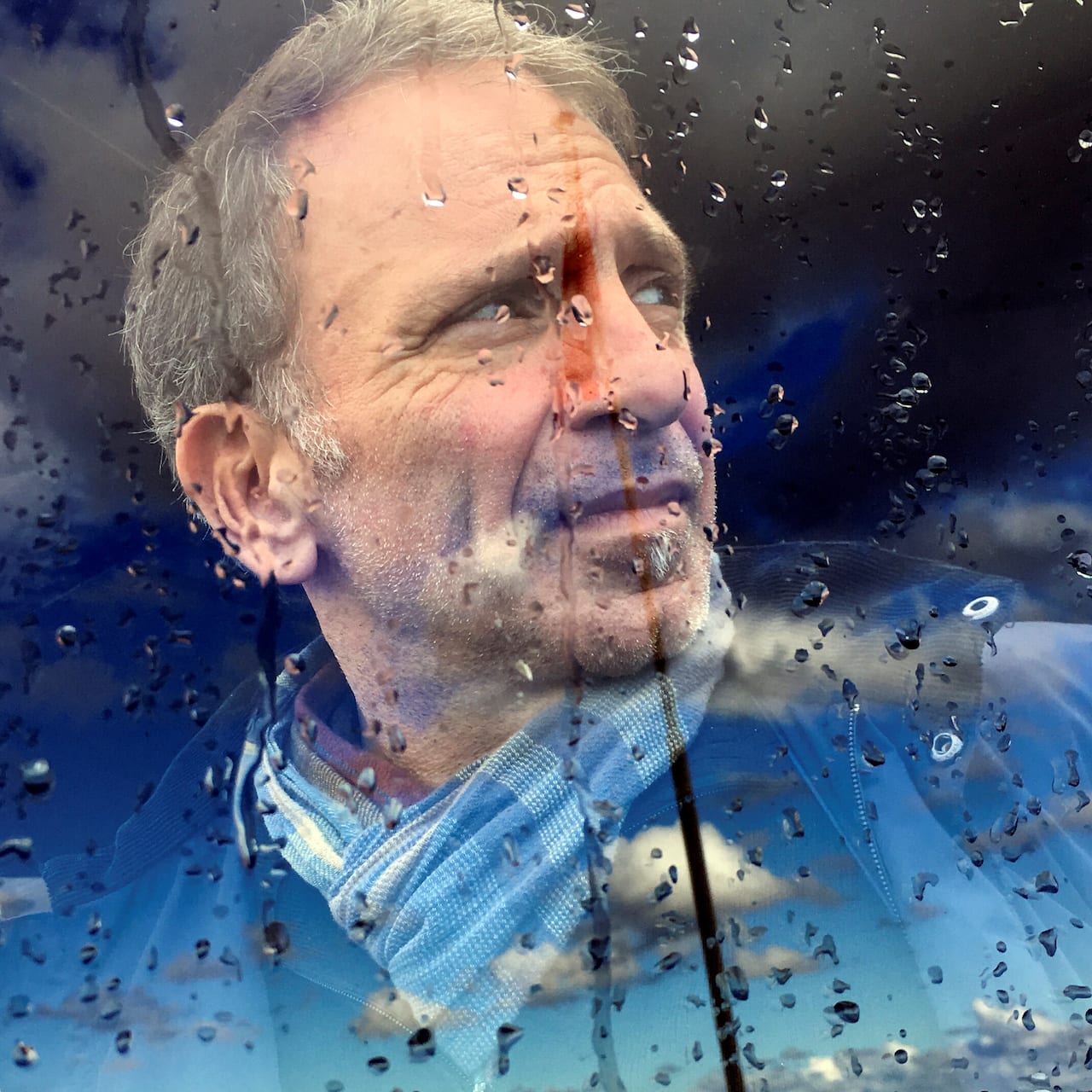Born in Athens in 1960, Yannis Behrakis was inspired to take up photography after chancing across a Time-Life photobook as a young man. Going on to study photography in Athens and at Middlesex University in the UK, he started working for Reuters in 1987 and by 1989 had been sent on his first foreign assignment – Muammar Gaddafi’s Libya, where he quickly made his name.
“He quickly displayed a knack for being in the right place at the right time,” reports Reuters’ site The Wider Image. “When Gaddafi visited a hotel where journalists had been cooped up for several days, a scrum of reporters crowded around the Libyan leader to get pictures and soundbites.
‘I somehow managed to sneak next to him and get some wide-angle shots,’ Behrakis wrote. ‘The next day my picture was all over the front pages of papers around the world.’”
Behrakis went on to document epoch-making events around the world, such as the funeral of Ayatollah Khomeini in Iran, the post-Soviet fall out in Eastern Europe and the Balkans, the wars in Croatia, Bosnia and Kosovo, Chechnya, Sierra Leone, Somalia, Afghanistan, Lebanon, the first and second Gulf wars in Iraq, the Arab Spring in Egypt, Libya and Tunisia, the civil war in Ukraine, and the Nato bombing of ISIS in Syria.

In 2000, Behrakis survived an ambush in Sierra Leone in which his close friend, the American reporter Kurt Schork, was killed, along with the Spanish cameraman Miguel Gil Moreno de Mora of Associated Press Television. He and South African cameraman Mark Chisholm escaped and hid in the jungle for hours until the gunmen disappeared; emerging back onto the road, Behrakis took a self-portrait to commemorate the moment.
Behrakis covered the Israeli-Palestinian conflict for many years and, moving to Jerusalem in 2008/09, became Reuters’ chief photographer for the region. In 2010 he moved back to Greece to cover the financial crisis, and the refugee crisis in the Mediterranean in 2015.
Behrakis attracted many accolades over his career, including winning the Bayeux-Calvados Awards for war correspondents three times. He won First Prize in the General News Stories category at World Press Photo in 2000 for his work on Kosovo, and led a Thomson Reuters team to win the 2016 Pulitzer Prize for Breaking News Photography for their work on the European refugee crisis.
“My mission is to tell you the story and then you decide what you want to do,” he told a panel discussing Reuters’ Pulitzer Prize-winning photo series. “My mission is to make sure that nobody can say: ‘I didn’t know’.”
Behrakis died from cancer at the age of 58 in Athens; he is survived by his wife Elisavet and their daughter Rebecca and his son Dimitri.
https://widerimage.reuters.com



